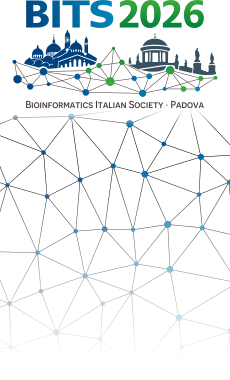CFP: (IEEE CBMS2009) 5rd Special Track on Healthgrid Computing - Applications to Biomedical Research and Healthcare
--------------------------------------------------------------------------------
Special Track on Healthgrid Computing - Applications to Biomedical Research and Healthcare.
CBMS 2009: IEEE on Computer-Based Medical Systems (CBMS)
Sponsored by the IEEE Computer Society
August 3-4 2009, Albuquerque, New Mexico, USA
--------------------------------------------------------------------------------
Call for Papers
http://sara.unile.it/cbms2009/cfp.htm
http://cvial.ee.ttu.edu/cbms2009/
*****************
Bioinformatics, genomics, proteomics and medical image analysis are emerging methods in health care. Navigating between phenotype and genotype means that clinical data and genetic assessment need to be integrated in patient investigations. What is missing today is:
· full integration of methods and technologies that enhance all phases of health care, including diagnosis, prognosis, etc.;
· dissemination of such methods in clinical practice, whenever they are developed, deployed and maintained in order to positively impact patient outcomes.
Such a vision requires the design and implementation of computer tools, methods and platforms for seamless biomedical data and bioinformatics tools integration.
Main issues to realize such a vision are:
· Integration of multiple laboratories collecting genomics and post-genomics data, so that biology or bioinformatics research laboratories:
* can continue to maintain their own biological, biomedical and computing resources autonomously;
* can face effectively the growth of data they need to manage and process exploiting recent algorithms such as data mining taking into account that biomedical data are produced and stored continuously.
· Provision of large computing power:
* the medical image processing community that is facing a growing need to analyse 2D, 3D, and 4D images in order to realistically simulate medical treatment or surgery (radiotherapy, plastic surgery, etc.), and to develop computer aided surgery;
* integration of results and easy access by physicians to patients’ medical data anytime, anywhere.
The Grid paradigm offers CPU and data handling capabilities, and allows users and laboratories to share their facilities (computing and data storage resources, instruments, software, knowledge, etc.) through high bandwidth networks between dynamically formed Virtual Organizations.
Healthgrid computing can be a solution for the deployment of Grids in medical research centres, taking into account that it has been very limited, until now, for a number of reasons. Cost, both in terms of infrastructure and manpower, is a significant barrier.
To face the complexity of novel, cooperative, distributed Health and Bioinformatics applications, new specialized Grid services have to be developed. Such services, integrated in a framework called Problem Solving Environment, allow deploying applications in a distributed way and carrying out complex “in silico” simulations by composing single bio-applications into manageable workflows. In such a way Grids can be deployed to address the needs of the biomedical community.
The main goal of the Conference Track is to discuss well-known and emerging bio data-intensive systems in the context of Grids, and to analyse technologies and methodologies useful to develop such systems in these environments. In particular, this Conference Track aims at offering a forum of discussion where young researchers and PhD students could present their research activities, either at an early or mature phase.
TOPICS OF INTEREST include, but are not limited to:
• Grid Infrastructures for Biomedical Data Analysis and Management
• Problem Solving Environments for Biomedical and Bioinformatics Applications
• Grid-based applications in the life sciences
• Workflow application for complex analysis processes
• High throughput for in-silico virtual screening
• Grid Computing Infrastructures, Middleware and Tools for Healthcare
• Grid Computing Biomedical Services
• Collaboration Technologies
• Databases and the Grid in the Biomedical Field
• Extracting Knowledge from Biomedical Data Grids
• Data Grids for Bioinformatics
• Grid Architectures for Interactive Biomedical Applications
• Grid Architectures and Solutions for Data-Intensive Biomedical Applications
• Grid-based Biomedical Informatics Interoperability
• Security in Biomedical Data Grids
• Semantic Grids for Multimedia Biomedical Data
• Ubiquitous Access to Grid-enabled Applications in Biomedicine
• High-performance Computing for Data-Centric Biomedical Applications
• Grid-based Visualization of Biomedical Data
• Integration of Grid-enabled Applications into Clinical Practice
IMPORTANT DATES
April 1, 2009 Submission of (6-page, maximum) paper
May 25, 2009 Notification of acceptance
June 21, 2009 Final camera-ready paper due
June 21, 2009 Pre-registration deadline
For further questions, please contact: maria.mirto@unile.it
Track Chairs
* Giovanni Aloisio (University of Salento, Lecce, Italy)
* Maria Mirto (University of Salento, Lecce, Italy)
* Almerico Murli (University of Naples, Italy)
* Tony Solomonides (University of the West of England, UK)
* Alfredo Tirado-Ramos (University of Amsterdam, The Netherlands)
Track Program Committee (TO BE CONFIRMED)
* Dave S. Angulo, DePaul University, USA
* Robert G. Belleman, University of Amsterdam, The Netherlands
* Christian Barillot, Campus de Beaulieu, 35042 Rennes Cedex, France
* Vincent Breton, CNRS/IN2P3, LPC Clermont-Ferrand, France
* Marian Bubak, AGH Krakow PL / UvA Amsterdam NL
* Mario Cannataro, University "Magna Græcia" of Catanzaro, Italy
* Rita Casadio, Biocomputing Lab, University of Bologna, Italy
* Carole Goble, University of Manchester, UK
* Vicente Hernandez, Universidad Politecnica de Valencia
* Dieter Kranzlmueller, Joh. Kepler University Linz, Austria
* Mary Kratz, University of Michigan Medical School Information Services, USA
* Giuliano Laccetti, University of Naples "Federico II", Italy
* Yannick Legre, CNRS/IN2P3 France
* Johan Montagnat, CNRS (I3S laboratory) France
* Silvia D. Olabarriaga, University of Amsterdam, The Netherlands
* Cecilia Saccone, ITB/CNR Institute of Biomedical Technologies of Bari, Italy
* Jonathan Silverstein, Computation Institute of the University of Chicago, USA
* Richard Sinnott, National e-Science Centre, Glasgow, UK
* Peter M.A. Sloot, University of Amsterdam, The Netherlands
* David W. Walker, Cardiff Univ., UK
* Albert Zomaya, University of Sydney, Australia




